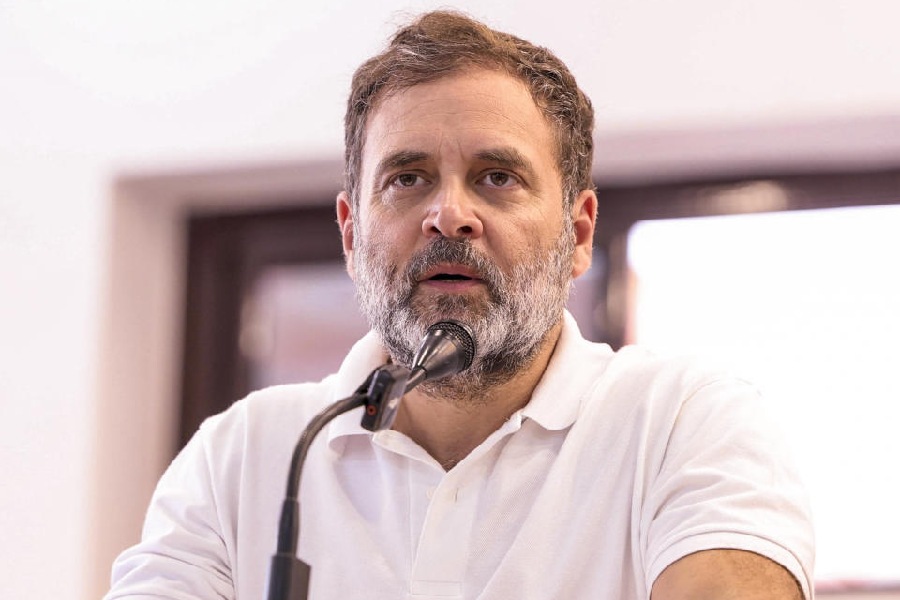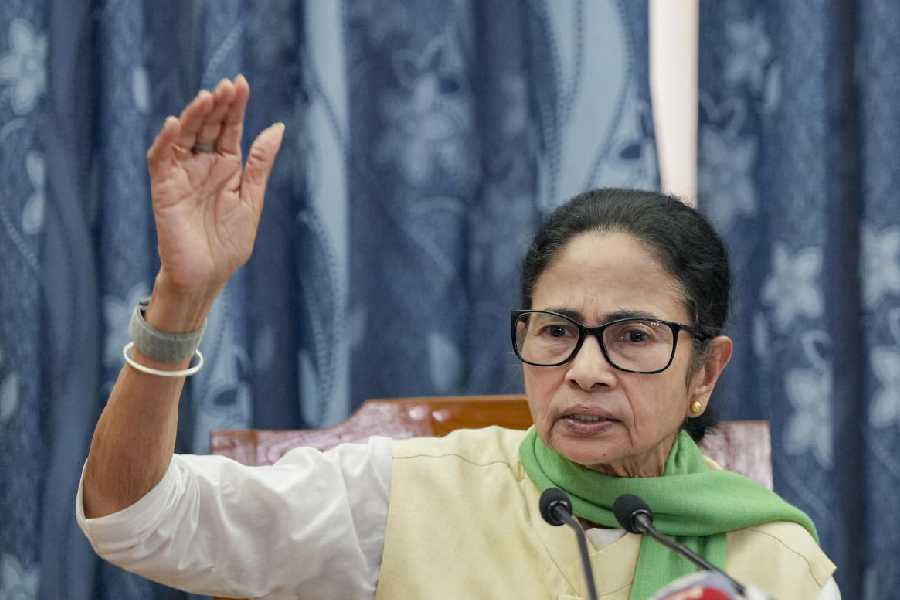|
|
| Anantha Murthy: an impossible community |
The Storyteller
If, as I claimed in my last column, the two questions tirelessly asked of Indian writers in English ? ?Which audience do you write for?? and ?Are you exoticising your subject for a Western audience?? ? if these two questions are among the vulgarized legacies of Said?s Orientalism, then maybe we could enquire about what sorts of presuppositions they?re based on. Take the first question first, which accuses, by implication, the Indian writer in English of being removed from his or her ?natural? readership: an Indian one. The question relies on a few utopian ideas, which are present everywhere, and all the time, in the way we think of these matters.
For instance, the idea of an ?Indian audience? is itself a utopian one; and, like all utopian fictions, it makes us flushed with emotion, and fills us, according to the situation, with a sense of pride or injustice or protectiveness. Yet it?s difficult to construct an ideal readership, waiting to receive or welcome or judge new works by writers, in a country in which even the Anglophone urban middle class ? a minority ? is divided and differentiated by conflicts and disharmonies of interest: political, social, intellectual, not to speak of pettier reasons for disagreement. Possibly the question arises from an Arcadian vision of Indian history, a residue of which still remains among us ? India as a womb of storytelling and myth, where audience and storyteller or performer are umbilically united. And possibly it comes from a simplified view of other cultures, including modern ones, where writers are perceived to write for a bourgeois constituency that also provides a ?natural? habitat ? so that the problem of the audience is seen to be a problem special to the deracinated, dislocated Anglophone Indian (a belief shared by many Anglophone Indians themselves), who has, as it were, stepped out of, or turned against, nature.
Yet the dissonance between audience and writer goes into the heart of modernism, and the modern, itself: not only in the populist sense in which, say, John Carey has understood that dissonance, as a form of elitism, a high-handed, inhumane rejection, by the modernists, of the ordinary person. I mean that the dissonance is written into the text; that it?s a profound and complex resource for the writer. For instance, the rift between reader and writer not only surrounds the novel, Ulysses, and its reputation; it?s a powerful component in the work. We know that the Ulysses-figure in the novel, Leopold Bloom, the petit-bourgeois copywriter, is not the kind of man who?d read Ulysses, or is exactly the sort who wouldn?t. Bloom?s reading comprises the trashy magazine, Titbits, which he peruses in the lavatory, ?seated calm above his own rising smell?. Later, as if it were a recyclable that had unsuspected uses, he turns it to toilet paper: ?He tore away half the prize story sharply and wiped himself with it.? A great gap, in terms of writer and audience, divides Joyce from Bloom. Stylistically, artistically, Joyce, in writing his novel, had no intention of closing that gap, but only of widening it; but imaginatively, he needed to make the journey toward Bloom so that his novel might move outward into the world from the circumference of Stephen?s persona, and onward from the Portrait. In writing it, Joyce defines no clear-cut, consoling relationship to his audience; the novel is built upon a paradox, upon both the necessary embracing and the necessary rejection of Bloom by his creator.
Let me cite another instance of this dissonance, this time in a story from a vernacular Indian literature, where (so the person who asks the Indian English writer the question about the audience implies) author and reader are supposedly at one in prelapsarian harmony. The story is ?Suryana Kudure?, or, in A.K. Ramanujan and Manu Shetty?s translation, ?A Horse for the Sun?, by the Kannada writer, U.R. Anantha Murthy, whom I very much admire, but whose public pronouncements have got him into a sort of critical rut. These pronouncements largely consist of repeated airings of the belief that the vernacular or ?bhasha? writer has an immediate and organic access to his readership and community that the Anglophone Indian writer doesn?t and, really, can?t. Yet his own finest work tells us something quite different about the location of the modern Kannada writer, and the tensions latent in the latter?s relationship to his or her readership. In ?A Horse for the Sun?, the narrator, a person very like the author, even down to his name, ?Anantha?, a city-dwelling intellectual, a disillusioned Marxist, returns briefly to his village, and, accidentally, runs into a childhood friend, Venkata ? a bit of a clown, a buffoon, a person who hasn?t moved on or achieved anything; by Anantha?s social and moral standards, a failure.
Anantha is disappointed in, even repelled by, his old friend; but, oddly, he?s also attracted to his air of sensuousness and freedom, his apparent unburdenedness. Venkata?s domestic life is a mess; but he embodies an elemental, physical joy. Later in the day, in his house, he tells a reluctant and tired Anantha that he?ll administer him a head-massage; while doing so, he launches into a near-meaningless, extraordinary soliloquy. Newsprint and faeces mingle with one another in Bloom?s toilet; in Venkata?s bath, Anantha?s various tortured cerebral speculations dissolve into Venkata?s rapturous pre-verbal utterance and the body?s sensations. Venkata is the story?s subject, but, as Anantha knows, he will not be its reader; and it?s precisely the physical closeness and intellectual disconnectedness that Anantha feels for Venkata that impels and shapes the story, that gives its sense of thwarted desire and its calamitous ending. Anantha Murthy, the spokesman and propagandist for Kannada literature, and flagellant of Indian English writing, believes the ?bhasha? writer belongs to an organic community; the vision of Anantha Murthy, the artist, arises compellingly from the conviction that no organic community is possible.
No writer has a given and recognisable audience, except in our dreams and reconstructions of antiquity or medieval history. A writer, sooner or later, has to come to terms with this, in a much more painful and thoroughgoing way than the questioner in the audience will understand. The reader too needs to come terms with it, if they are to have more than a passing interest in what literature does; for the writer not only speaks to the reader, but interrogates the unbridgeable gap between themselves. Any theory of reading that doesn?t take this into account will leave itself open to question. Benedict Anderson?s narrative of nations coming into being through ?imagined communities? of readers is, for instance, yet another utopian conflation of nationality with readership, which never incorporates, into its study, the notion that discontinuities are as important to the formation of the modern imagination as collectivities. It?s not only the reader who takes the decision of rejecting or accepting a writer; the writer, too, depending on what his objective is at that moment, and how he means to achieve it, gives himself to, or withholds himself from, the reader.











